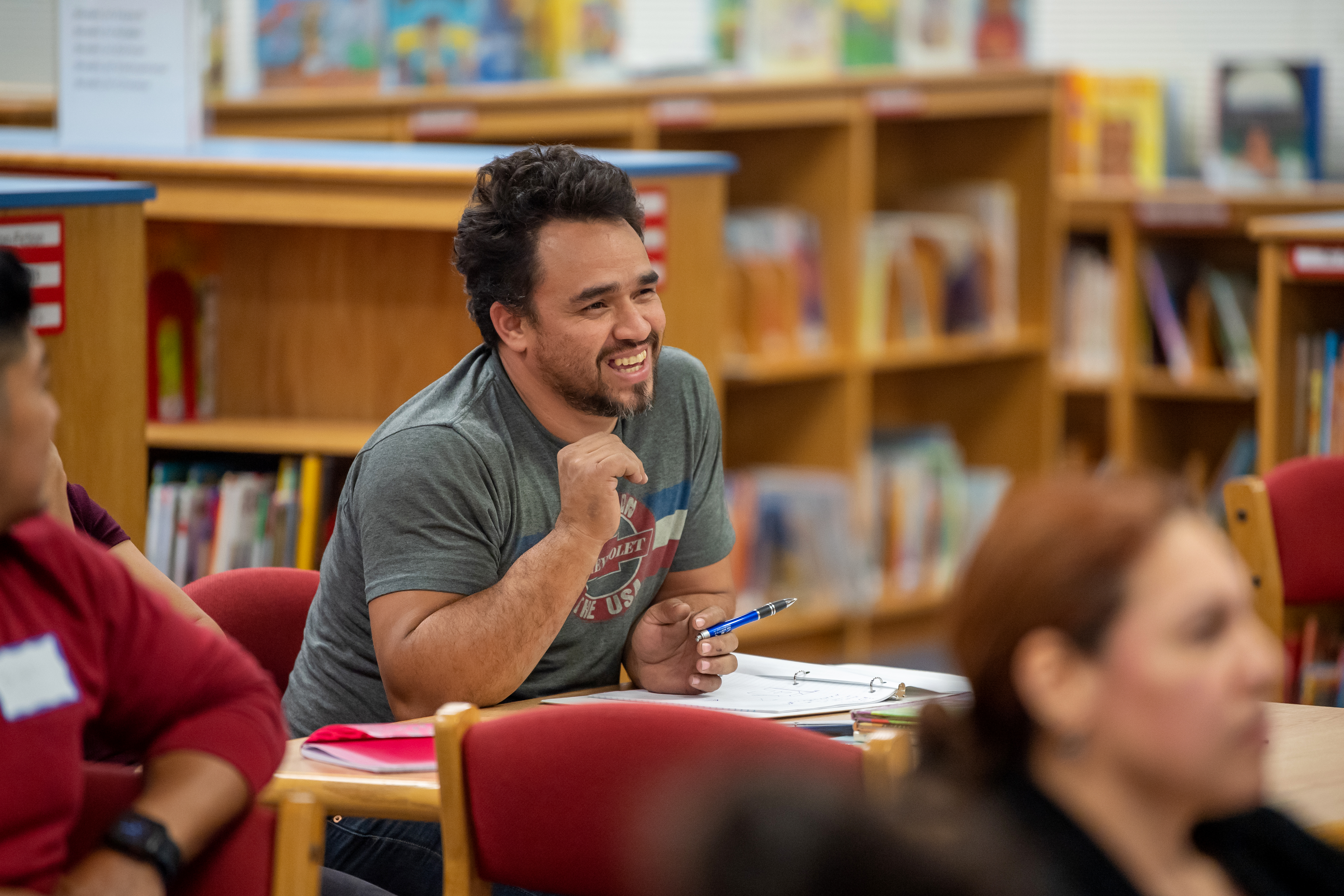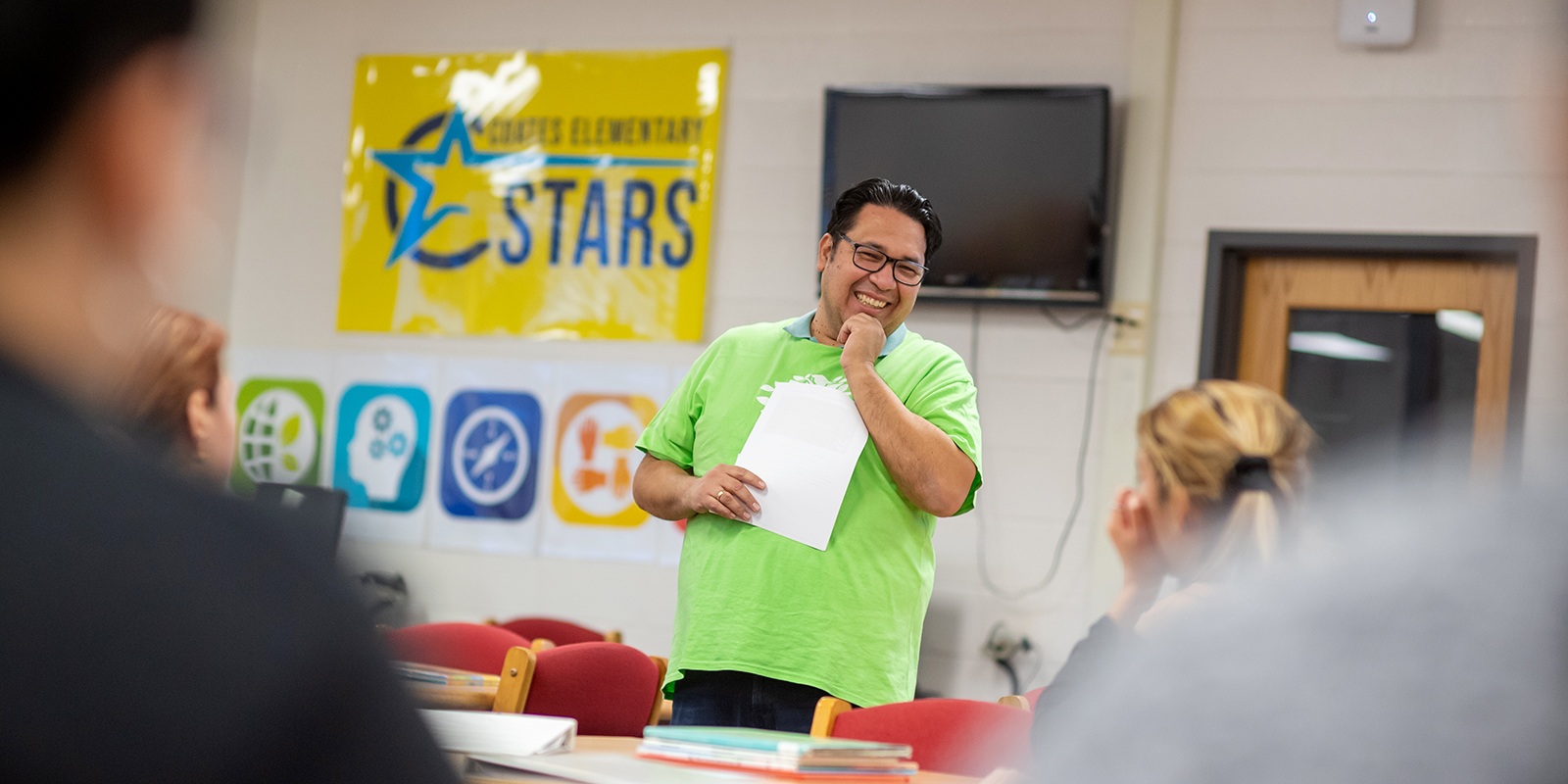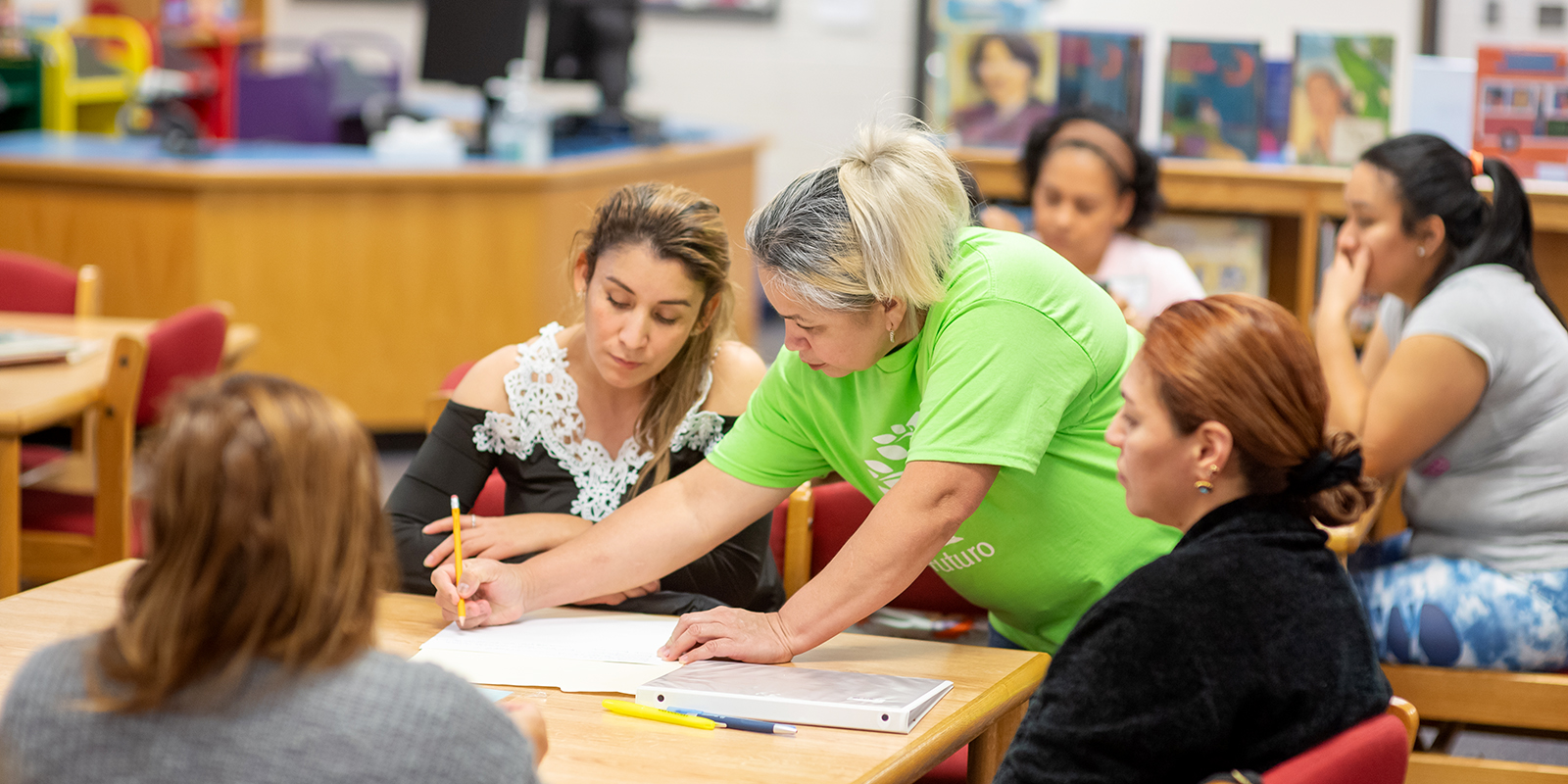Coates Family Academy Has Parents Learning Tips to Support Kids in FCPS
On Thursday evenings at Lutie Lewis Coates Elementary School in Herndon, roughly 20 parents are reporting for class.
Instructor Marcelo Ribera is walking the mothers and fathers through a lesson on the importance of opening your child’s backpack every day after school, saying it may contain important communications from the teacher or principal, as well as information about school gatherings or sign-up forms for sports or clubs.
The Coates Elementary Family Academy is intended to be a boot camp of sorts for families adjusting to the American public education system. Family Liaison Solangie McPherson came up with the idea two years ago, when, in the throes of the pandemic, she saw a need to bolster parent-teacher relationships at the school, where almost half of the students are English language learners, and many families are new to the U.S.

“I soon realized many parents needed training, they wanted to help their children but needed a sort of guide to schools here,” McPherson said. And so, the Coates Family Academy was created: those interested take courses in everything from early literacy supports, to school vocabulary/English language instruction, computer/technology systems and parent rights/responsibilities.
Things that are commonplace in U.S. public education these days, like teachers sending Sign-Up Genius forms to parents to volunteer in class or schedule a conference, or knowing how to operate a laptop to assist a child during virtual learning, were proving challenging for some parents, McPherson said. Buzzwords in the school system, like the shorthand of AAP for Advanced Academic Programs, or IEP for individualized education program, a term used in special education, were also unknown to many newcomers to the U.S., she says.
“Disadvantaged families need assistance across the board,” said Jorge Figueredo, executive director of Edu-Futuro, a regional nonprofit that is an FCPS Ignite Partner, and provides the curricula, funding for meals, childcare and other costs -- including paying instructor Ribera for his time -- tied to the Family Academy.

“Things that are simple for many families, like how to complete online school forms, are not simple for some of the families we serve,” Figueredo said. “They don’t have a computer at home, and they didn’t know they could use their cell phone to do these things, so we teach them how to use their smart phones, and how to use a laptop and we start with the basics like what the enter key means and we build their skills from there."
Those who complete at least four courses in five different subject areas over the course of the school year will become official Coates Family Academy graduates come June. This past year, 16 parents earned that distinction.
Every Thursday, participants meet at 6 p.m. and start by eating dinner together.
“The idea behind this is we’re going to give you everything you need to be supported in your learning as parents,” McPherson said. “Usually parents are getting off work at 6pm, this way they aren’t rushing home after school and work and trying to eat quickly in the hopes of getting out the door to attend this program. They come here, they eat together, there’s no rush and they focus on learning.”
After dinner, the children attend free-of-charge tutoring, provided by FCPS students from nearby Rachel Carson Middle School who patiently listen to young elementary students read aloud to them, and then, after they spent time on academics, the elementary students attend extracurricular activity classes like Hip-Hop dance or soccer.
The parents, meanwhile, are hitting the books. Sometimes it’s an Edu-Futuro sponsored class that aims to help parents of tweens and teens learn how to set limits, create goals, and help their children avoid peer pressure, other times it is a class on positive discipline for elementary students run by a division of FCPS.
On this particular Thursday in October, Marcelo Ribera, an immigrant from Bolivia and an FCPS parent himself, is running a Jeopardy-type game for the parents to play as they brush up on their knowledge of parental rights and responsibilities in the school district.
“Can parents visit their children’s classes?” Ribera asks the group in Spanish. Most of the parents shout “No!” in response. Ribera shakes his head and says in Spanish: “Actually, YES. Parents have the ability to visit classes and have lunch with their children, when they make an appointment in advance and clear it with the teacher and principal.”
Ribera then lists off ways in which the school would appreciate parent involvement, such as volunteering in the library, assisting in the cafeteria or chaperoning a field trip.
Sprinkled throughout the game are questions about what constitutes an excused absence from school (being sick, having a medical appointment or an emergency such as a death in the family were all acceptable answers) and what actions to take if your child is having problems in class (first make an appointment to speak with the teacher).
Yesika Cruz, a Honduran immigrant who is the mother of a fifth-grader at Coates, says she attends the weekly sessions because she wants to know what the expectations are for parents within FCPS.
“I am learning how to talk to teachers, who needs to be contacted when my child is sick, what types of questions I should ask at conferences like what different levels mean for reading and math, how I can help at home,” Cruz says.

Fellow Coates parent Ada Flores, who moved to the U.S. from El Salvador, says she’s learned that the American education system expects more two-way communication with parents.
“We are all coming here because we want to be better for our kids, we want to be empowered parents, there is so much information here, we just need to know how to use it,” Flores said.
Their hard work is showing, Coates Elementary School Principal Paul Basdekis says of those who attend the Family Academy.
“It sends a clear message to our children that we are all learners,” Basdekis says. “These parents commit to an ongoing progression of learning so that they can lead and strengthen their families.”
Some of the parents who attend have even wound up becoming salaried FCPS employees working at Coates themselves, he adds.
McPherson, the school’s family liaison who created the program with the support of Edu-Futuro, says she sees the payoff for parents who commit to attending.
“The parents who have taken these classes are very independent now,” McPherson said. “We gave them the resources, they are now doing it on their own. You can see they feel more confident, even if English isn't their first language, that they can be involved and can support their kids and they know how to ask for help if they need it."
Learn More About FCPS Ignite Partnerships
Explore Family Engagement in FCPS
